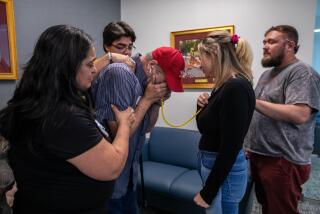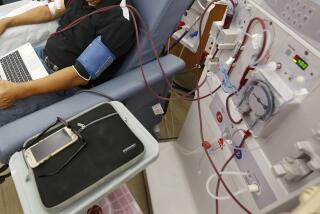Readers React: Make organ donation the default
- Share via
To the editor: The authors neglect to suggest the most logical and effective solution to the organ shortage problem: Make organ donation upon death the default. Instead of allowing it only when specified, make not allowing it the exception. (“We shouldn’t treat kidneys as commodities,” Op-Ed, June 30)
Most people I’ve asked say they wouldn’t mind donating organs when they’re done with them, but they don’t know the steps to take to make it happen. That, or they don’t want to take the time to figure it out. That often leaves the decision to grieving relatives.
Of course, anyone can opt out by simply filling out a form, telling closest relatives or specifying their choice in an advance health care directive.
Large corporations share their customers’ personal and financial information with marketing partners unless those customers specifically ask them not to. Because the government allows businesses to do this by default for profit, shouldn’t it support the same process to end needless suffering, reduce medical costs (for example, by reducing the need for dialysis) and save hundreds of lives each year?
Joel Broude, Carlsbad
..
To the editor: Alexander Capron and Gabriel Danovitch skip a key reality. Unless thousands of additional living donors are found, most of the patients waiting for kidneys will end their lives plugged into dialysis machines.
Allowing people who need money more than their kidney to voluntarily exchange with people who need the kidney more than their money improves conditions for both parties.
Allowing the market for kidneys to operate would without question increase organ supply and would indeed “undermine the system now in place.”
Good. That system is broken, and smug paternalism won’t fix it.
James E. Moore II, Los Angeles
More to Read
A cure for the common opinion
Get thought-provoking perspectives with our weekly newsletter.
You may occasionally receive promotional content from the Los Angeles Times.









